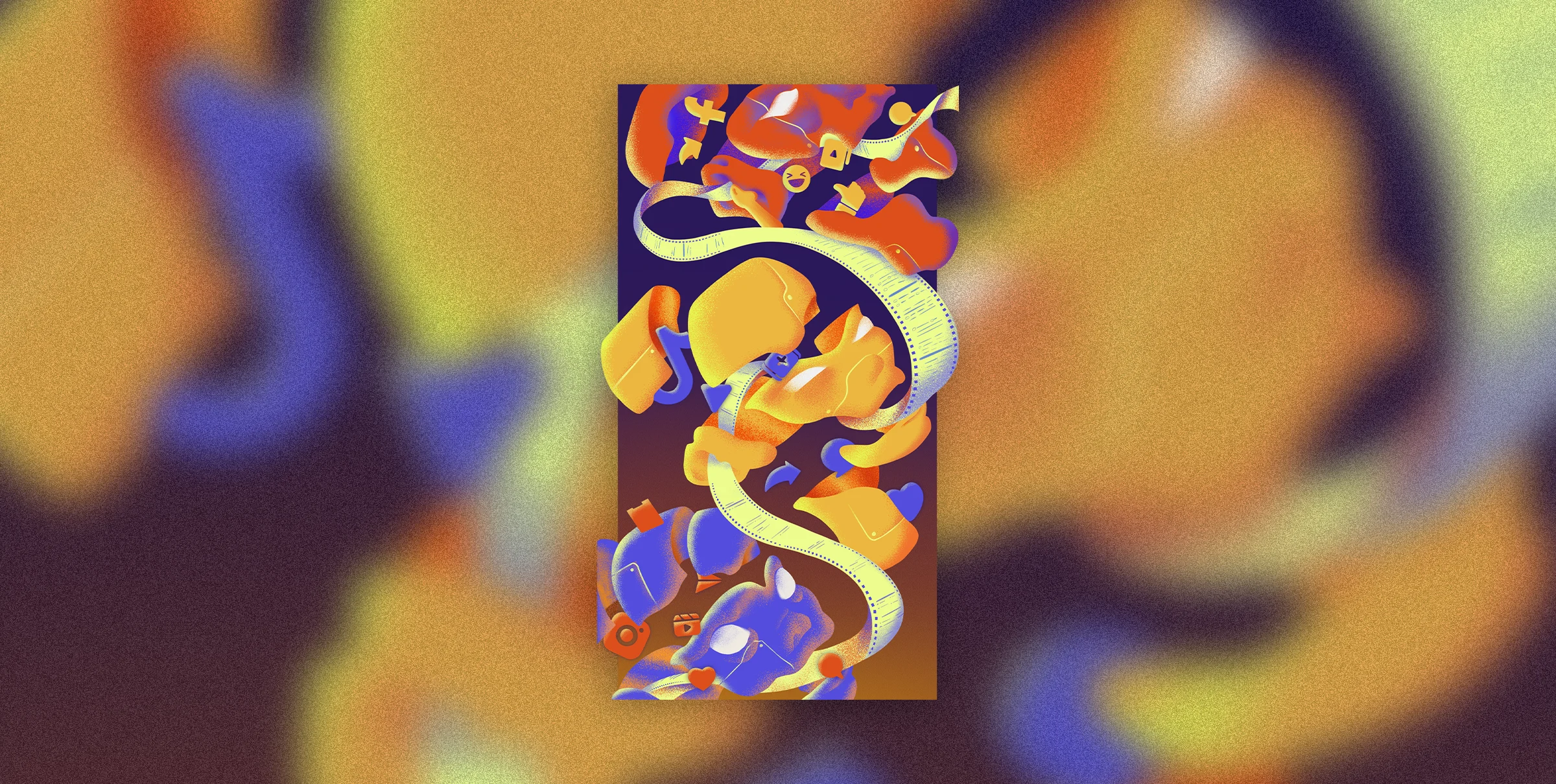
The 2025 Midterm Election arrives at a pedestal where democracy’s lifeline struggles against algorithmic suffocation.
For Gen Z voters—digital nomads that are raised with TikTok’s viral content and Instagram reels—the fight isn’t just about candidates or policies.
We face an invisible enemy, where platforms that exploit viral outrage that influence our attention spans and reduce critical thinking to quick content consumption, distract us from reality.
Social media, once considered as a democratizing force, now stumbles between informing about the facts and eroding truth.
Our screens became a tool to manipulate and swing vote, where the algorithm that it uses to interpret your daily digital media intake may influence your voting decision.
Millennials and Gen Z voters, who shape 63% of the voting population, use platforms like TikTok daily.
However, they are no longer just spaces for dance trends, but a battleground where propaganda masquerades as viral content and the proliferation of misinformation both in history and to a candidate’s background.
This duality demands urgency that must be confronted. As algorithmic warfare continues to manipulate the choices, distorts reality, and threatens the sanctity of the democracy of the Filipinos in the upcoming Midterm Election.
The arena in digital space
Social media’s promise of a democratized discourse now feels like a cruel joke. Over 80% of Filipinos consume news online, but some online algorithms feed voters curated lies wrapped in viral packaging.
For instance, consider a candidate’s mistake in a 15-second interview that spreads rapidly, outpacing fact-checkers.
This would result in lasting misinformation accepted as truth before the correction is even publicized.
Today, the tactics evolve where AI-generated deep fakes of candidates “admitting” to corruption, chatbots posing as “concerned citizens,” and micro-targeted lies that whisper exactly what voters want to hear.
Instead of selecting qualified leaders, voters now make choices based on strategic narratives designed to manipulate their decisions.
Social media has become the modern-day agora, but its gates are guarded by confusing algorithms prioritizing engagement over integrity.
Deep fakes, bots, and the illusion of TikTok
Artificial Intelligence has turned misinformation into a weapon. The COMELEC’s Resolution No. 11064 seeks to control AI’s risks by requiring disclosures for altered content, but implementation remains uncertain.
Even campaign materials are now produced by AI, which creates tailored manifestos that imitate candidates’ voices to promise everything to everyone.
TikTok's rise as a news platform initiated this crisis. Its algorithm, crafted to create addiction or “brain rot,” emphasizes brevity and emotional appeal.
For young Filipinos, this entails facing electoral issues through polished montages accompanied by popular audio—frequently lacking context or spreading misinformation.
During the 2022 Presidential Elections, TikTok was flooded with nostalgic content for martial law shared by pro-Marcos influencers, evoking memories of dictator Ferdinand Marcos Sr. during what they termed a "golden age."
Loopholes remain in place even following TikTok's ad ban in 2025. Misinformation isn’t the final goal—apathy is. When voters are overwhelmed by a flood of contradictory stories, they cease to trust in anything.
Emotional manipulation undermines trust. TikTok's algorithm reduces complex policies into catchy jingles and brain rot videos. Gen Z voters, who grew up in an era of immediate enjoyment from entertainment, increasingly link truth to validation from algorithms. Debate a policy with sourced facts? You’re “biased.” Criticize a viral smear campaign? You’re “hating.”
The result? A generation conditioned to value entertainment over enlightenment.
Resistance through digital literacy
A cultural transformation is needed—one that views digital literacy as essential for survival rather than an elective subject to take. We need to understand how to analyze algorithms just like scientists examine viral infections and economists assess a nation's economic forecast. Who benefits from this post? What emotions does it stir? What prompts me to interact with content as I view a video clip?
Every reaction, share, and click counts as a vote for what succeeds online. Algorithms are calculated math, not destiny. When Gen Z voters verify a viral falsehood instead of spreading it, they alter the narrative. When the general public shares COMELEC advisories instead of deep fakes, they disrupt the disinformation servers.
Fact-checking organizations, like the Philippine Center for Investigative Journalism, have exposed false information, as workshops teach Filipinos to recognize deep fakes by observing unnatural eye motions.
Benildeans, your focus is power. This election is not a matter of left versus right—it's a question of reality versus simulation. Algorithms might separate us, yet united efforts can take back our story.
The answer to algorithmic warfare lies not in disconnecting, but in engaging from a new perspective. Fill your social media with clips of farmers discussing their battles for land reform, rather than influencers poking fun at candidates' clothing. Follow trusted and verified individuals and institutions such as journalists, historians, and educators. And, for heaven’s sake, take a moment before you share.
Democracy won’t die with a bang, but with a mindless scroll if misguided by misinformation. The screen before you is a mirror—will it reflect critical thought or compliance with algorithms? The future isn't dependent on candidates: it depends on you as a user. The next click is yours, will it save or surrender our democracy?